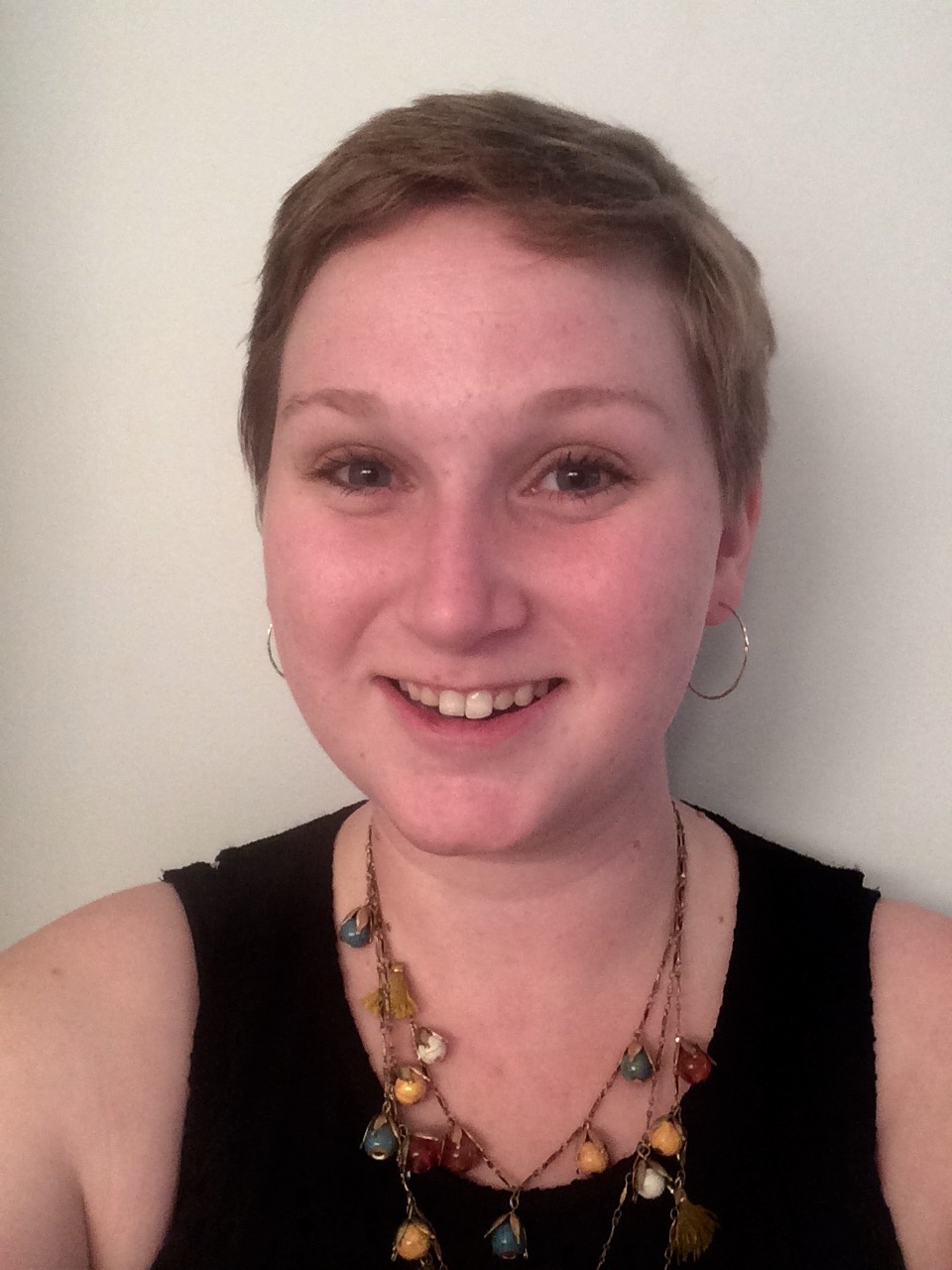Lauren Godfrey is a recently graduated student at Agnes Scott College and a finalist in Nonfiction. We caught up with her this week to ask her a few questions about her life and her craft. Her piece, “If You Can Hear Your Neighbor,” will be published in the 46th annual ASC Writers’ Festival magazine.
The Writer

Photo Courtesy of Lauren Godfrey
What are you reading right now?
Right now, I am finishing up In Cold Blood by Truman Capote. I’ve wanted to read it since I started writing creative nonfiction, and I waver between “How impressive, the amount of detail is insane!” and “No way this is all true. No. What? No. Stop it, Tru.” Next up is Rebecca by Daphne du Maurier; my fiction-writing friends have insisted I read it for months.
In what spaces do you like to write?
Once I am focused on a piece, I like to write early in the morning, pretzeled in my blue armchair with a black rollerball pen and a spiral notebook. If I’m looking for inspiration, I frequent busy coffee shops and my favorite breakfast place. In all cases, a huge mug of coffee helps.
Where do you want to go from here? What are your next steps?
I graduated from Agnes Scott in December, and I recently started working at The Hirsch Academy in Decatur as an assistant teacher. I intend to continue writing new pieces and expanding the memoir I started in my senior seminar, and I am very excited to see where teaching may take me!
What’s a source of inspiration for you?
One great thing about creative nonfiction: everything is a potential piece. While I draw inspiration for topics from many places (personal relationships, extra-caffeinated mornings on Facebook), I look to great writers for the actual spark that will get me writing. When the topic is food, I like to read M.F.K. Fisher for fifteen or twenty minutes. When I was writing my memoir a few months ago, I started writing sessions with Chimamanda Ngozi Adichie’s Americanah or Jessica Valenti’s Sex Object.
The Work
Why this genre?
I thought I would focus my creative writing major on poetry because I grew up writing poems. Creative nonfiction never crossed my mind until I took an intro class two years ago. The timing couldn’t have been better; poetry had begun to feel inaccessible to me, leading me to doubt my entire existence (but mostly my college career). The transition wasn’t difficult because poetry can be a form of nonfiction, like an essay distilled way down to the base emotions. I found creative nonfiction provided me with great opportunities to process events in my life as well as opportunities to simply learn. For example, I knew a little about shape note singing when I started “If You Can Hear Your Neighbor, You Aren’t Singing Loud Enough”, but by the time I finished the essay, I knew so much more about my attraction to the tradition and the story of shape note singing in America.
What do you want readers to take away from your piece?
I expect a lot of readers will not have heard of shape note singing, so I hope they come away with a basic understanding of how the practice came about and why it stuck around. Mostly, I hope people will look into singing’s and maybe attend one because they are fantastic.
What was the most challenging part of writing your piece?
Deciding how to write about music. I wanted my piece to be accessible to readers with different levels of music knowledge, but I didn’t want to spend the whole time explaining jargon and concepts. I needed to go through a few drafts before striking a balance that I found comfortable.
What are you most proud of in your piece?
My favorite aspect of this piece is the flow between my experience and general information about shape note singing. Singings are about people as much as they are about music, if not more, and this piece wouldn’t get to the heart of the Sacred Harp tradition without a human angle.
Fun Fact:
If you like bread or food blogs or you want to read more of my writing, I recently launched a website called Millennial Loaves! I’m very excited about it, and if you’re interested, check out millennialloavesblog.com
0 Comments